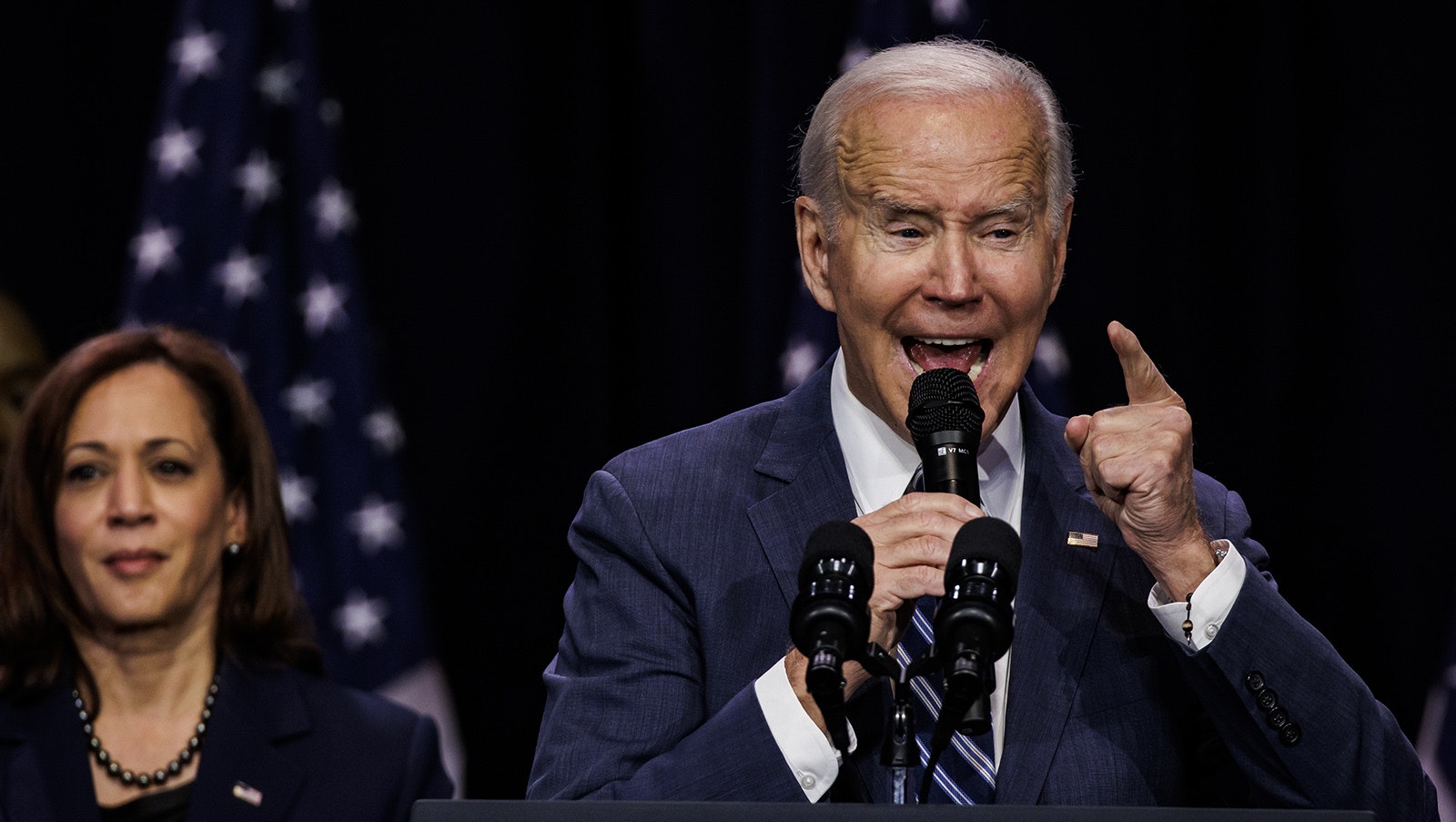President Joe Biden’s $400 billion student loan forgiveness program is unconstitutional, according to a federal judge who vacated the program Thursday.
Biden and the U.S. Department of Education announced a program in August forgiving about $400 billion in federal student-loan debt for millions of people.
Mark T. Pittman, U.S. District Court Judge for Northern District of Texas, on Thursday ordered that the program be vacated, or undone, saying that Congress didn’t authorize it and Biden’s program violates the Constitution’s separation of powers doctrine.
“In this country, we are not ruled by an all-powerful executive with a pen and a phone,” wrote Pittman in the order. “Instead, we are ruled by a Constitution that provides for three distinct and independent branches of government.”
The case is not over, as the U.S. Department of Education has appealed Pittman’s ruling to the Fifth Circuit Court of Appeals for a reconsideration.
In Wyoming, lawmakers railed against Biden’s program. The state’s Republican U.S. Sens. John Barrasso and Cynthia Lummis rebuked the effort. Lummis called it “misguided” and Barrasso said it was politically motivated.
‘Workaround’
Pittman said that the forgiveness program for student loans was the executive branch’s attempt at a “workaround” after two similar efforts had failed in Congress.
“No one can plausibly deny that (the program) is either one of the largest delegations of legislative power to the executive branch, or one of the largest exercises of legislative power without congressional authority in the history of the United States,” he wrote.
Pittman was appointed by former President Donald Trump, who also had attempted to forgive student loans during the COVID-19 pandemic but was denied by the U.S. Department of Education and criticized by U.S. House Speaker Nancy Pelosi for the attempt.
The department at the time told Trump it did not have the authority to forgive student loans.
But the education department “changed its tune” under Biden, Pittman wrote in his order, and tried to use the HEROES Act to forgive federal student loans.
The Argument
Plaintiffs Myra Brown and Alexander Taylor sued the U.S. Department of Education on Oct. 10, saying the loan-forgiveness program prejudiced them because they did not qualify for it.
Brown’s student loan was commercially held and Taylor would have received $10,000 instead of $20,000 in forgiveness because he did not receive a Pell grant in college.
They also argued that the program violated the Administrative Procedures Act because it did not have a public-comment period; that it was an improper use of the HEROES Act, which authorizes debt forgiveness for people impacted by war and national emergencies.
The department countered, saying the plaintiffs can’t argue that they’re being prejudiced and that a massive federal gift doesn’t harm them simply because it excludes them.
The federal department also argued that no public-comment period was necessary because the program rightfully fell under the HEROES Act, which doesn’t require a public-comment period. The department argued that the program fell under the HEROES Act because of COVID-19.
“According to the Secretary (of the education department), every portion of the country is a ‘disaster area due to COVID-19,’ and ‘every person with a federal student loan’ … is an affected individual,” wrote Pittman in summary.
Potential For injury
Pittman rejected the federal government’s arguments, saying program prejudice does have a concrete potential for injury. He said that the program is not a reasonable use of the HEROES Act.
“A ‘merely plausible textual basis for the agency action’ is not enough,” said Pittman. “The agency instead must point to ‘clear congressional authorization’ for the power it claims.”
Pittman said the department’s move deserved skepticism because it was so economically and politically significant – economically significant because it cost billions of dollars; politically significant because Congress had tried and failed at least twice to enact legislation that would do what the department attempted to do unilaterally.
The HEROES Act, noted Pittman, does not specifically mention loan forgiveness, but allows the government to “waive or modify” debt.
COVID-19 does fall within the HEROES Act’s definition of a national emergency, the judge said, but it’s not clear whether the emergency made the loan forgiveness necessary.
Pittman noted that before the program was due to be implemented, Biden declared COVID as “over,” which calls into question if the pandemic could still be considered ongoing under the HEROES Act.
“Defendants contend that in ten years, they could still use the HEROES Act to forgive student loan debt because of the COVID-19 pandemic if the Secretary deems it ‘necessary,’” said Pittman, adding that he disagrees with that broad application of the act.
No Re-Do
Pittman said he had the choice either to block (enjoin) the law from being enforced, remand it back to the agency for a reworking, or undo (vacate) it altogether.
He chose to vacate it, saying that it couldn’t be fixed to be made constitutional.
“The agency’s misstep is not correctible on remand – it is a complete usurpation of the congressional authorization implicating the separation of powers required by the Constitution,” he wrote.





